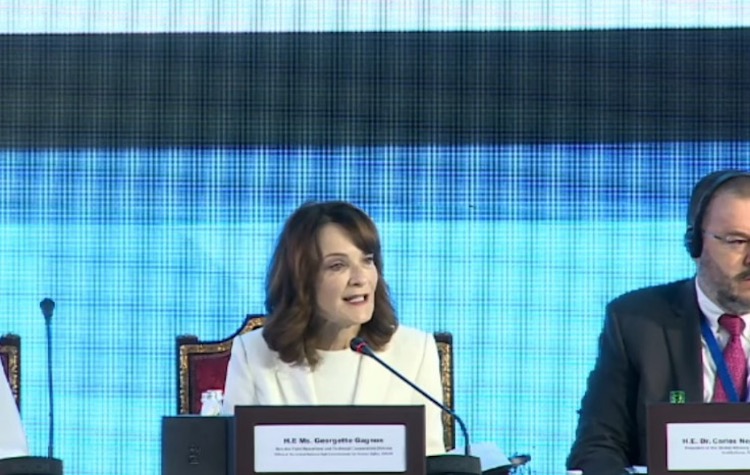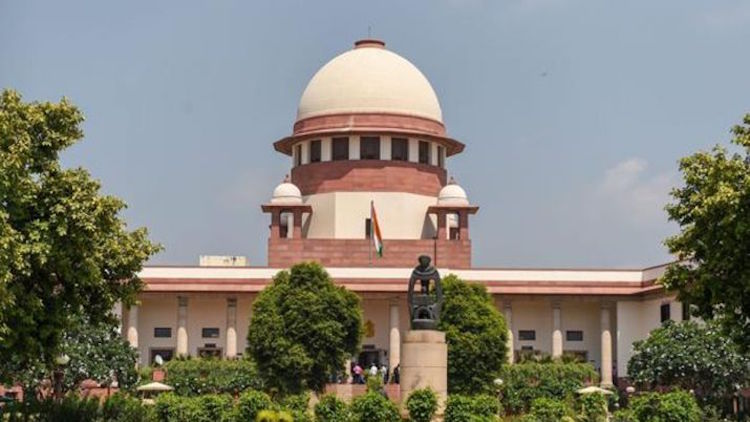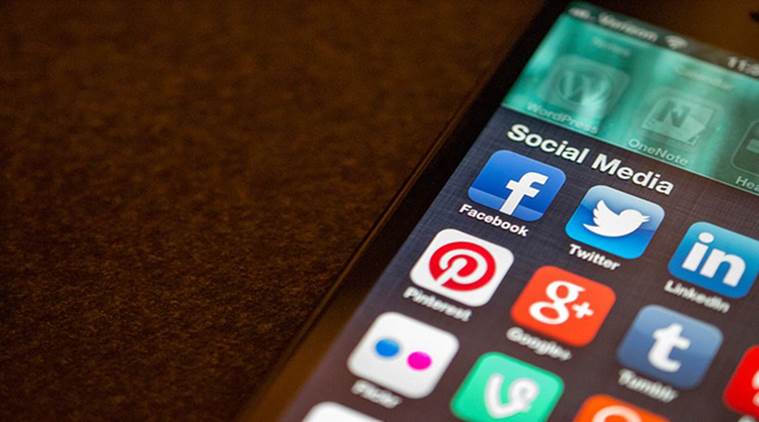UN Human Rights Official Cites Indian Supreme Court Observation On Internet Shutdowns

UN human rights official, Georgette Gagnon, cited the Indian Supreme Court’s observation in relation to the J&K internet shutdown that “complete broad suspension of telecom services, be it the Internet or otherwise, being a drastic measure, must be considered by the State only if ‘necessary’ and ‘unavoidable’.”
Gagnon, who is Director Field Operations and Technical Cooperation Division at the Office of the United Nations High Commissioner for Human Rights, was speaking at the opening session of the ‘International Conference on Social Media: Challenges and Ways to Promote Freedoms and Protect Activists’, on Sunday, organised by the National Human Rights Committee in Doha.
“We support national human rights institutions in their efforts to advance human rights and ensure that all laws in a country meet any state’s international legal obligations," she said. Gagnon raised the issue of the continued use of blanket and targeted disruption of communications. “Governments may order the disruption of telecommunications services, but it is the companies that manage networks or regulate online data traffic that actually implement most of these measures. It is expected that companies explore all legal options for challenging these requests,” she stated.
Gagnon warned that restrictions on social media platforms and the arrest and torture of those expressing dissenting views online are destroying the trust that should exist between peoples and their governments.
“Governments may order the disruption of telecommunications services, but it is the companies that manage networks or regulate online data traffic that actually implement most of these measures. It is expected that companies explore all legal options for challenging these requests,” she stated.
Gagnon warned that restrictions on social media platforms and the arrest and torture of those expressing dissenting views online are destroying the trust that should exist between peoples and their governments.
 “Accepting dissenting views can unlock a new and constructive consensus for society. Governments creating space for freedom of expression, including criticism and demands for reform to all voices can contribute to positive change. The imposition of restrictions on social media platforms, the arrest and sometimes torture or worse of those who express dissenting views online are profoundly destructive for trust,” she remarked.
“When we look at how social media is changing civic space, we should recall the range of legal standards that already exist around the world regulating what can and what cannot be said. Universal freedoms of expression, thought, assembly and association, as well as the right to privacy, are central for consolidating democratic societies and to securing development peace and security,” she highlighted.
The UN official stated that the agency observed the troubling situation of some politicians using social media extensively to achieve political goals, and at the same time imposing significant restrictions on the content of social media under their jurisdictions.
“Accepting dissenting views can unlock a new and constructive consensus for society. Governments creating space for freedom of expression, including criticism and demands for reform to all voices can contribute to positive change. The imposition of restrictions on social media platforms, the arrest and sometimes torture or worse of those who express dissenting views online are profoundly destructive for trust,” she remarked.
“When we look at how social media is changing civic space, we should recall the range of legal standards that already exist around the world regulating what can and what cannot be said. Universal freedoms of expression, thought, assembly and association, as well as the right to privacy, are central for consolidating democratic societies and to securing development peace and security,” she highlighted.
The UN official stated that the agency observed the troubling situation of some politicians using social media extensively to achieve political goals, and at the same time imposing significant restrictions on the content of social media under their jurisdictions.
 “The Internet, which has become a means of obtaining information and undertaking many different activities such as mobilising support, organisation and protest, has raised other concerns about the abuse of digital platforms, including incitement to hatred and violence against individuals, organisations and societies", Gagnon said.
“Human rights law requires that any interventions in the work of these platforms be well-designed to avoid irregularity and that they are accurate and clear to enable users to understand what is happening with the data they share, as well as enable them to object to any decisions that they consider to be unfair,” she remarked.
“Human rights law applied offline (outside the Internet) is also applicable to the online content. Close co-operation between states, private actors, civil society and national human rights institutions can ensure that human rights are taken into account when addressing challenges to the regulation of communications across the multiple digital platforms,” the UN official explained.
Watch Georgette Gagnon's full presentation in Doha:
“The Internet, which has become a means of obtaining information and undertaking many different activities such as mobilising support, organisation and protest, has raised other concerns about the abuse of digital platforms, including incitement to hatred and violence against individuals, organisations and societies", Gagnon said.
“Human rights law requires that any interventions in the work of these platforms be well-designed to avoid irregularity and that they are accurate and clear to enable users to understand what is happening with the data they share, as well as enable them to object to any decisions that they consider to be unfair,” she remarked.
“Human rights law applied offline (outside the Internet) is also applicable to the online content. Close co-operation between states, private actors, civil society and national human rights institutions can ensure that human rights are taken into account when addressing challenges to the regulation of communications across the multiple digital platforms,” the UN official explained.
Watch Georgette Gagnon's full presentation in Doha:
“We support national human rights institutions in their efforts to advance human rights and ensure that all laws in a country meet any state’s international legal obligations," she said. Gagnon raised the issue of the continued use of blanket and targeted disruption of communications.
 “Governments may order the disruption of telecommunications services, but it is the companies that manage networks or regulate online data traffic that actually implement most of these measures. It is expected that companies explore all legal options for challenging these requests,” she stated.
Gagnon warned that restrictions on social media platforms and the arrest and torture of those expressing dissenting views online are destroying the trust that should exist between peoples and their governments.
“Governments may order the disruption of telecommunications services, but it is the companies that manage networks or regulate online data traffic that actually implement most of these measures. It is expected that companies explore all legal options for challenging these requests,” she stated.
Gagnon warned that restrictions on social media platforms and the arrest and torture of those expressing dissenting views online are destroying the trust that should exist between peoples and their governments.
 “Accepting dissenting views can unlock a new and constructive consensus for society. Governments creating space for freedom of expression, including criticism and demands for reform to all voices can contribute to positive change. The imposition of restrictions on social media platforms, the arrest and sometimes torture or worse of those who express dissenting views online are profoundly destructive for trust,” she remarked.
“When we look at how social media is changing civic space, we should recall the range of legal standards that already exist around the world regulating what can and what cannot be said. Universal freedoms of expression, thought, assembly and association, as well as the right to privacy, are central for consolidating democratic societies and to securing development peace and security,” she highlighted.
The UN official stated that the agency observed the troubling situation of some politicians using social media extensively to achieve political goals, and at the same time imposing significant restrictions on the content of social media under their jurisdictions.
“Accepting dissenting views can unlock a new and constructive consensus for society. Governments creating space for freedom of expression, including criticism and demands for reform to all voices can contribute to positive change. The imposition of restrictions on social media platforms, the arrest and sometimes torture or worse of those who express dissenting views online are profoundly destructive for trust,” she remarked.
“When we look at how social media is changing civic space, we should recall the range of legal standards that already exist around the world regulating what can and what cannot be said. Universal freedoms of expression, thought, assembly and association, as well as the right to privacy, are central for consolidating democratic societies and to securing development peace and security,” she highlighted.
The UN official stated that the agency observed the troubling situation of some politicians using social media extensively to achieve political goals, and at the same time imposing significant restrictions on the content of social media under their jurisdictions.
 “The Internet, which has become a means of obtaining information and undertaking many different activities such as mobilising support, organisation and protest, has raised other concerns about the abuse of digital platforms, including incitement to hatred and violence against individuals, organisations and societies", Gagnon said.
“Human rights law requires that any interventions in the work of these platforms be well-designed to avoid irregularity and that they are accurate and clear to enable users to understand what is happening with the data they share, as well as enable them to object to any decisions that they consider to be unfair,” she remarked.
“Human rights law applied offline (outside the Internet) is also applicable to the online content. Close co-operation between states, private actors, civil society and national human rights institutions can ensure that human rights are taken into account when addressing challenges to the regulation of communications across the multiple digital platforms,” the UN official explained.
Watch Georgette Gagnon's full presentation in Doha:
“The Internet, which has become a means of obtaining information and undertaking many different activities such as mobilising support, organisation and protest, has raised other concerns about the abuse of digital platforms, including incitement to hatred and violence against individuals, organisations and societies", Gagnon said.
“Human rights law requires that any interventions in the work of these platforms be well-designed to avoid irregularity and that they are accurate and clear to enable users to understand what is happening with the data they share, as well as enable them to object to any decisions that they consider to be unfair,” she remarked.
“Human rights law applied offline (outside the Internet) is also applicable to the online content. Close co-operation between states, private actors, civil society and national human rights institutions can ensure that human rights are taken into account when addressing challenges to the regulation of communications across the multiple digital platforms,” the UN official explained.
Watch Georgette Gagnon's full presentation in Doha:
Latest Videos
















